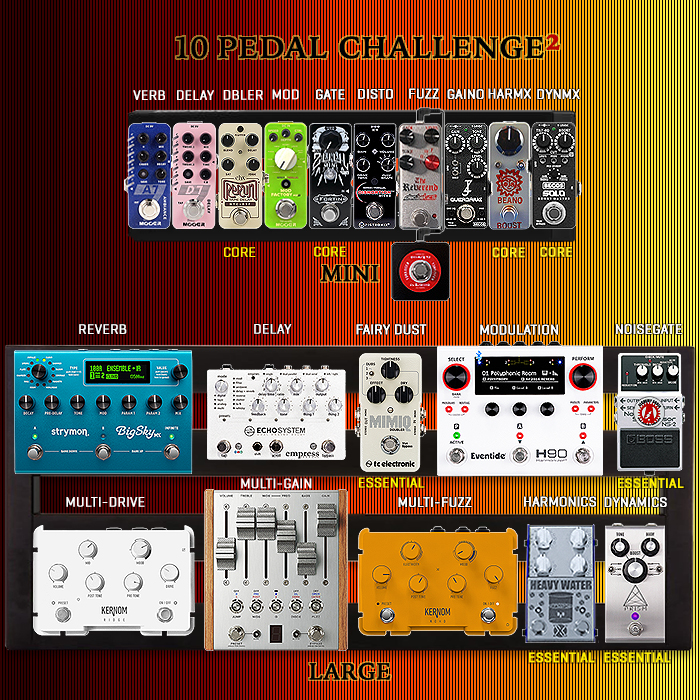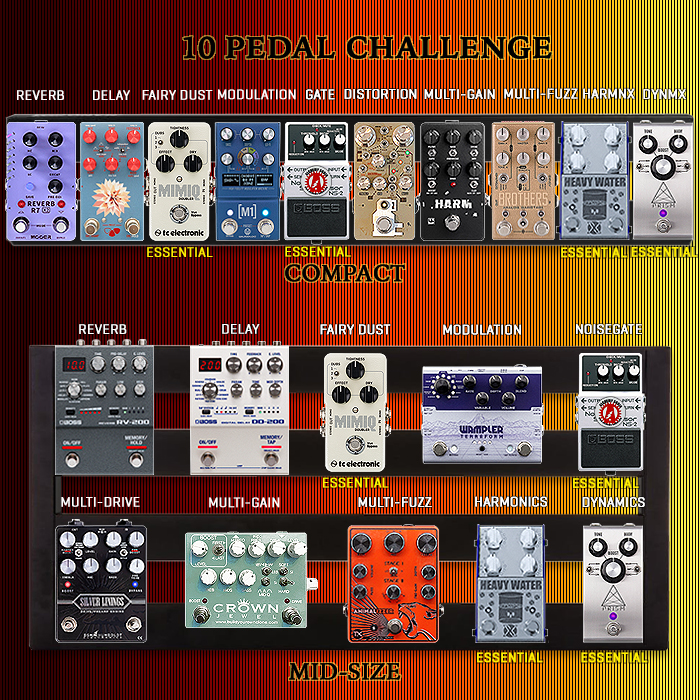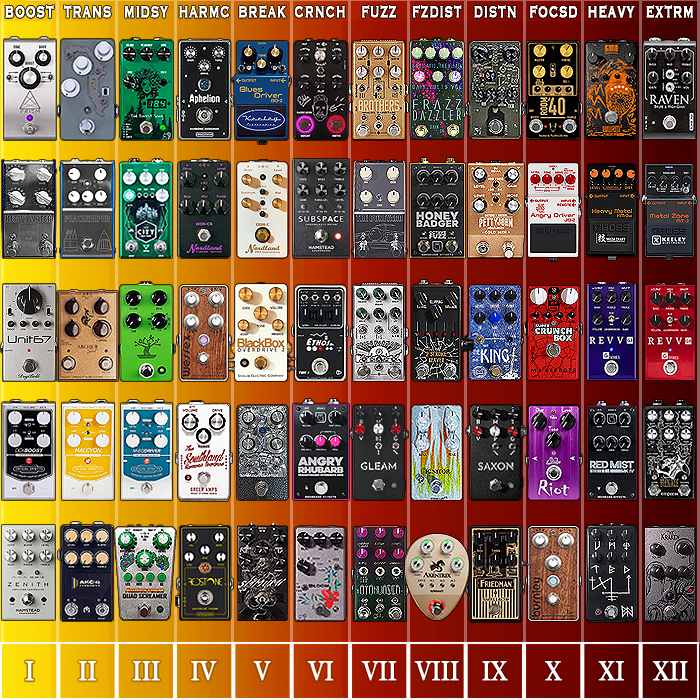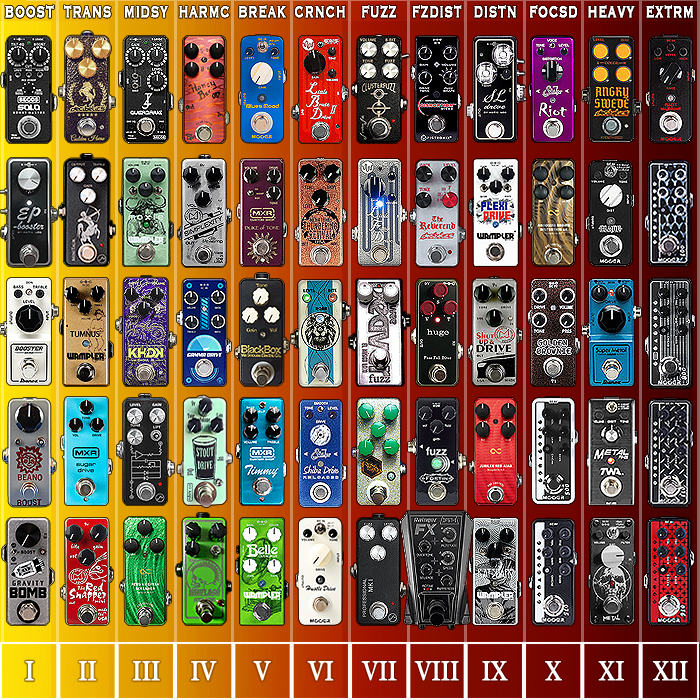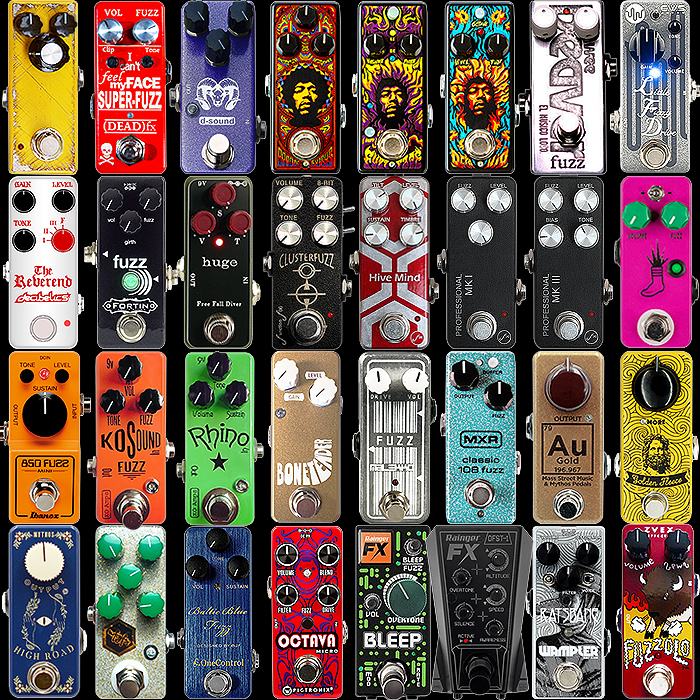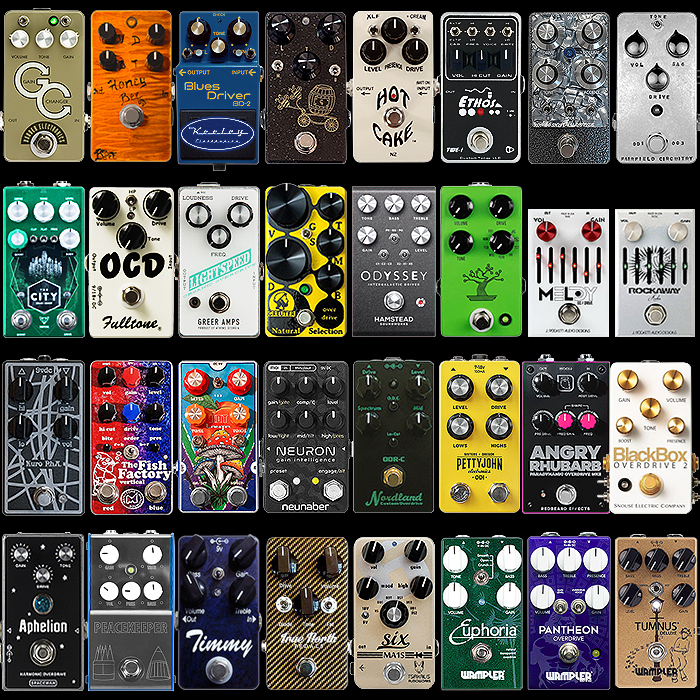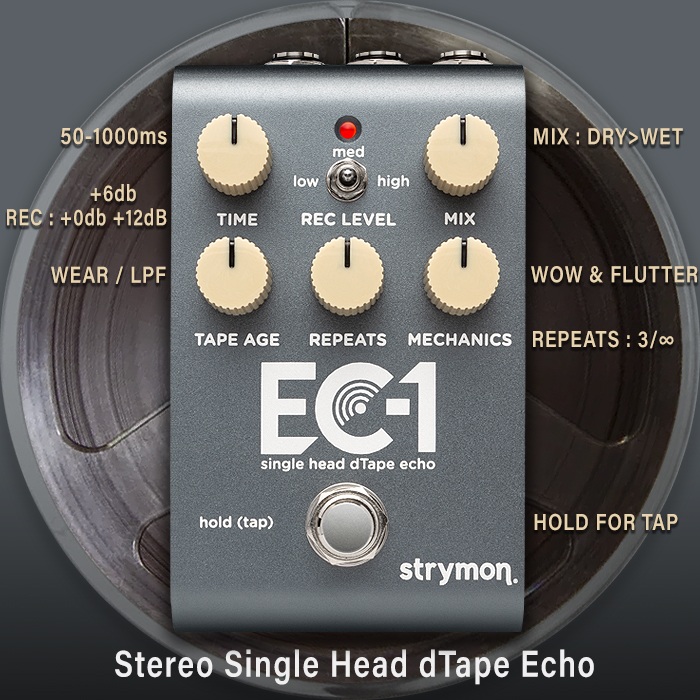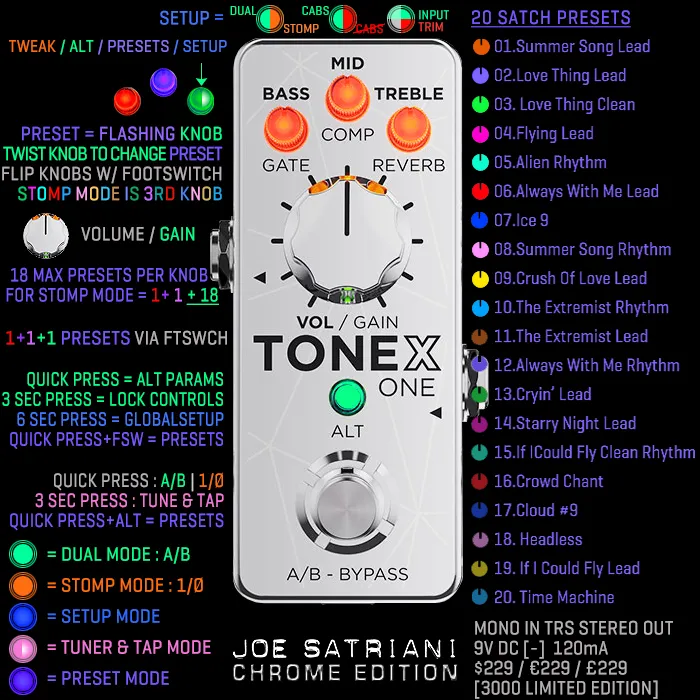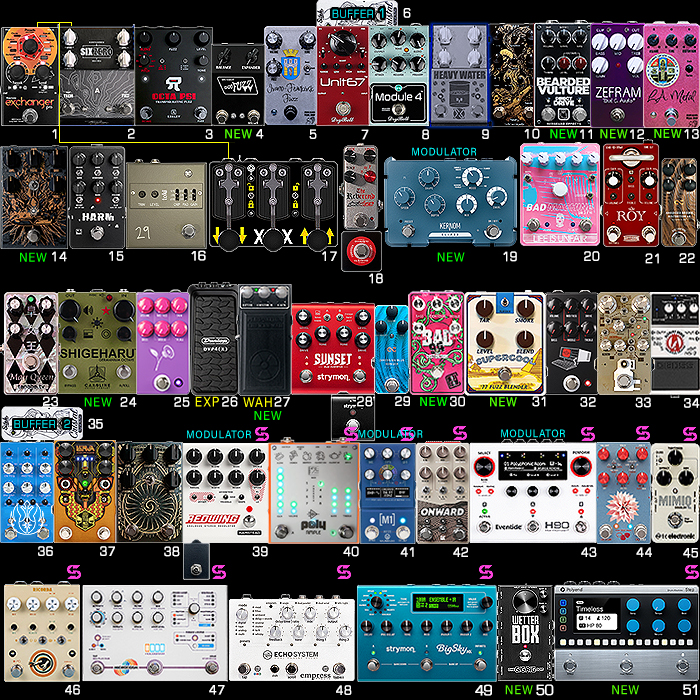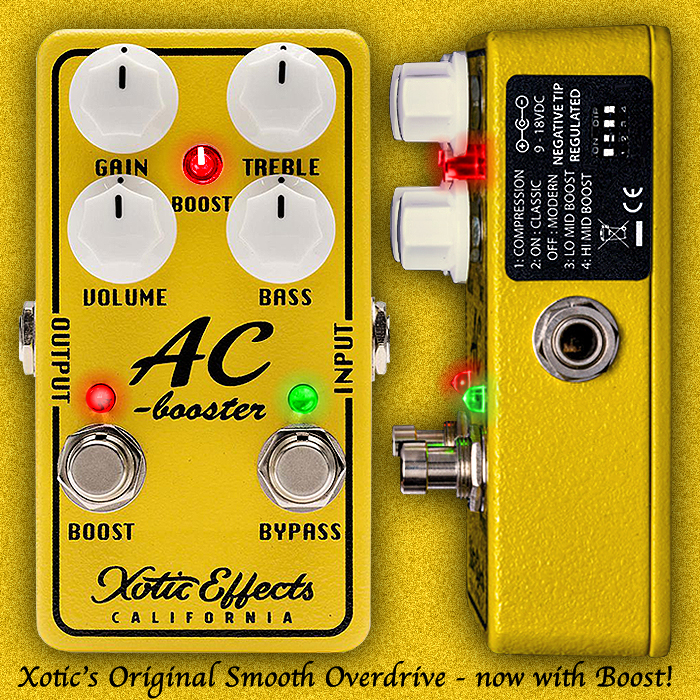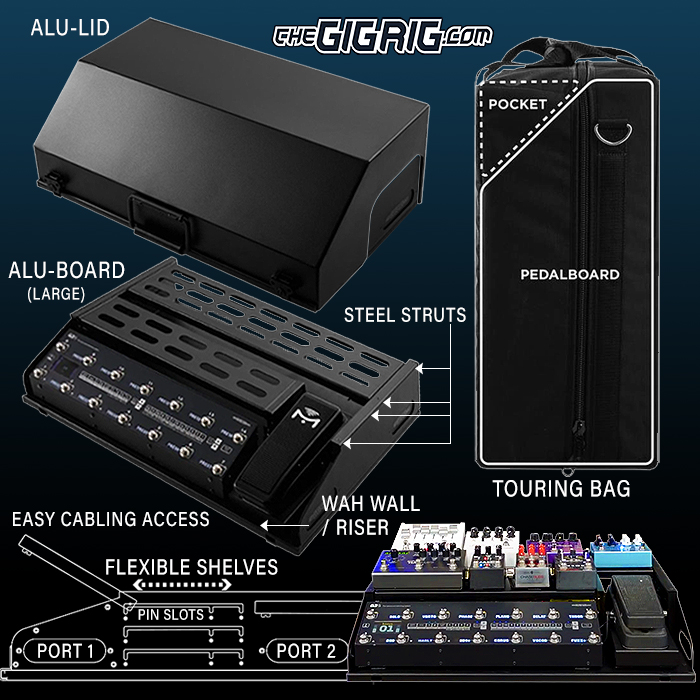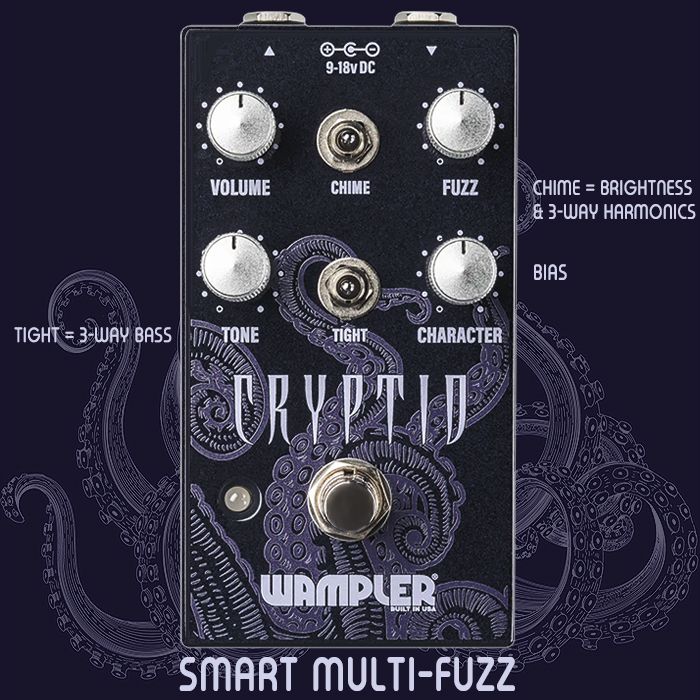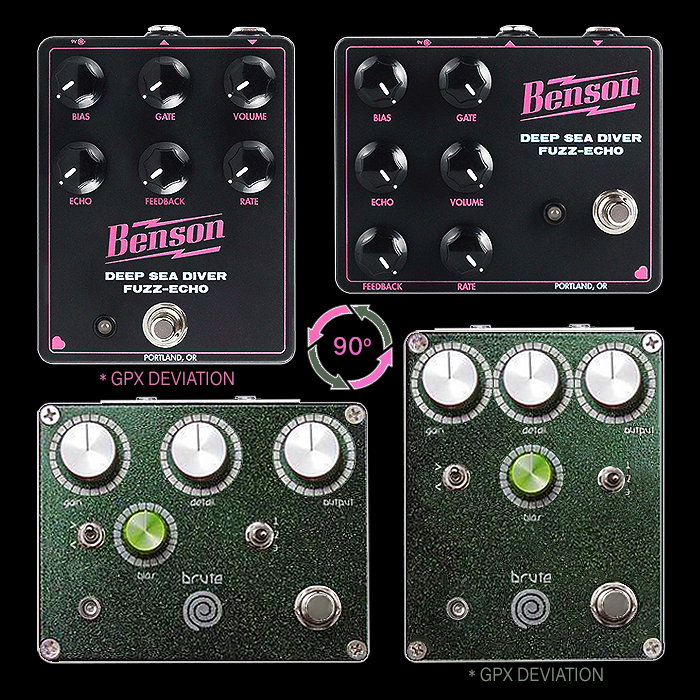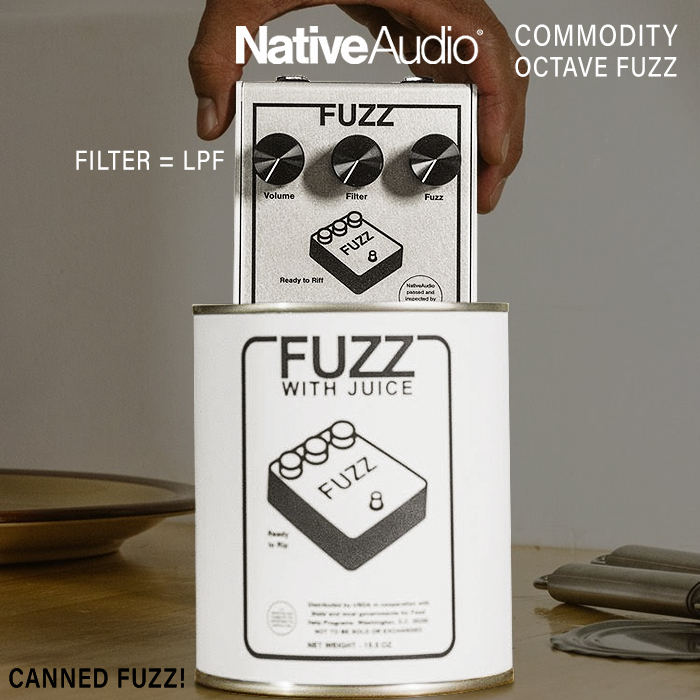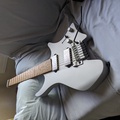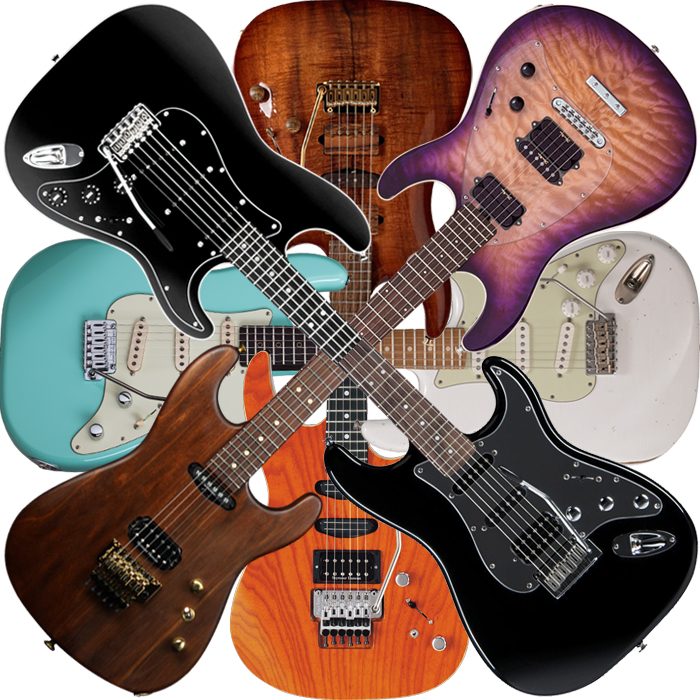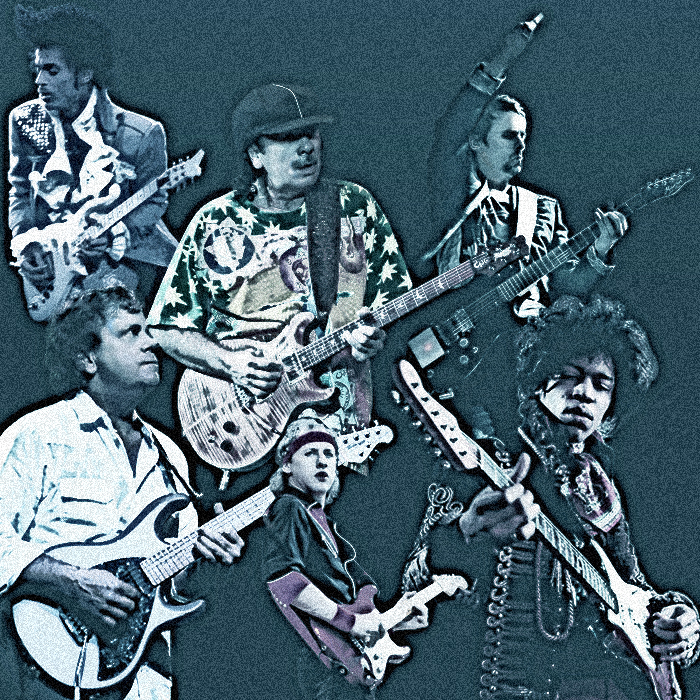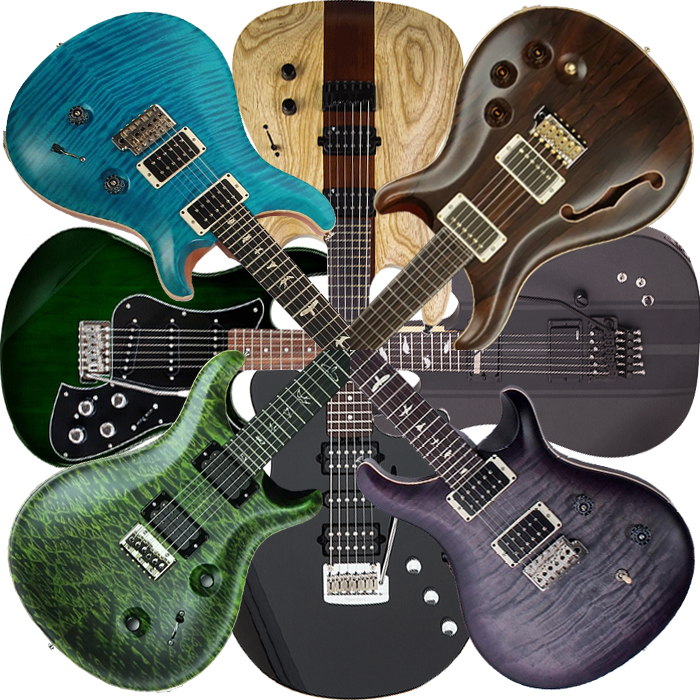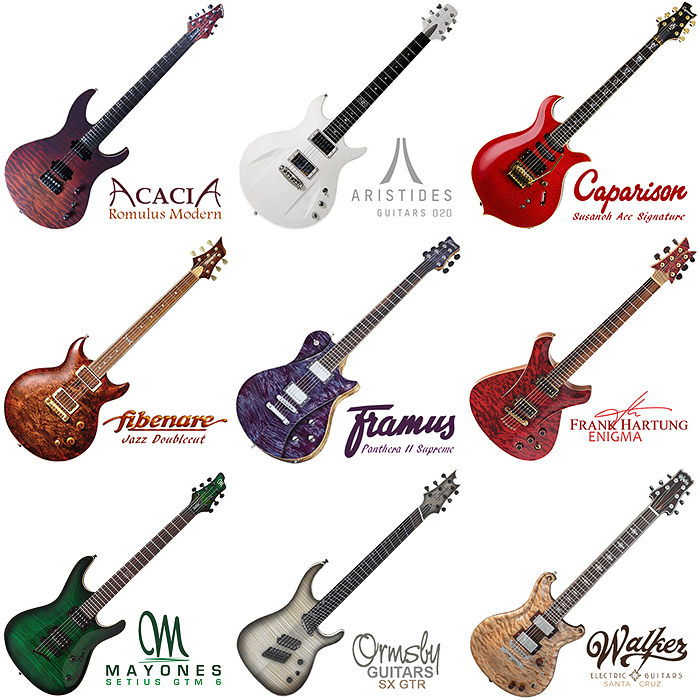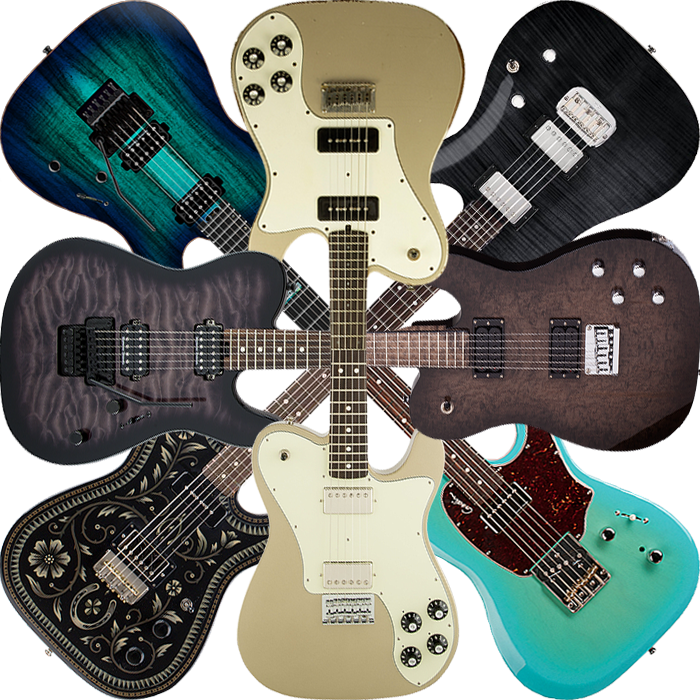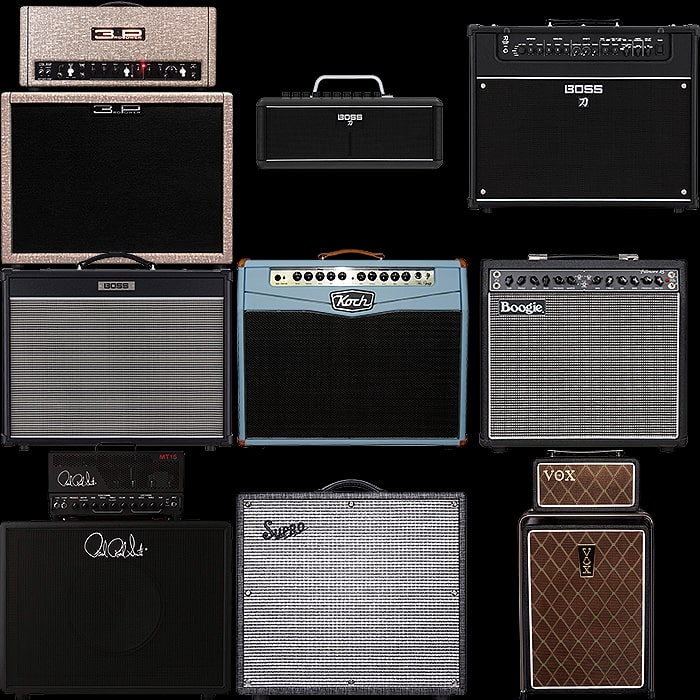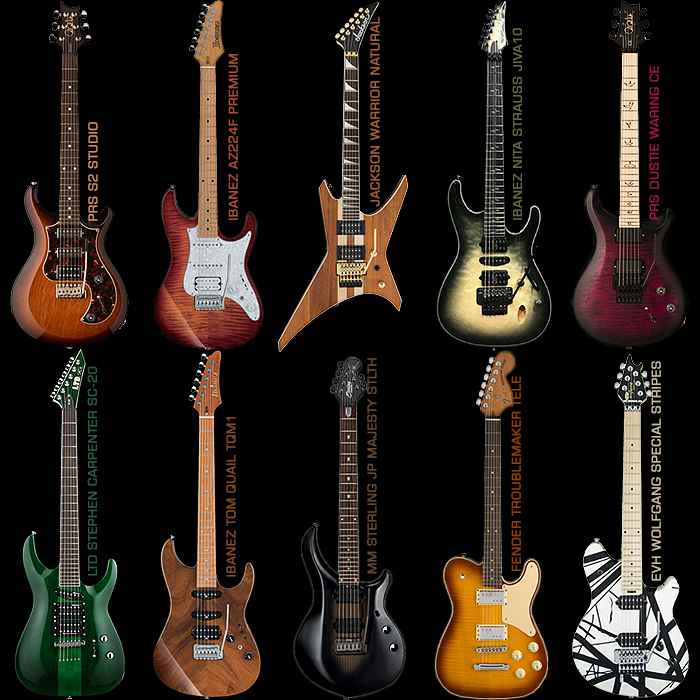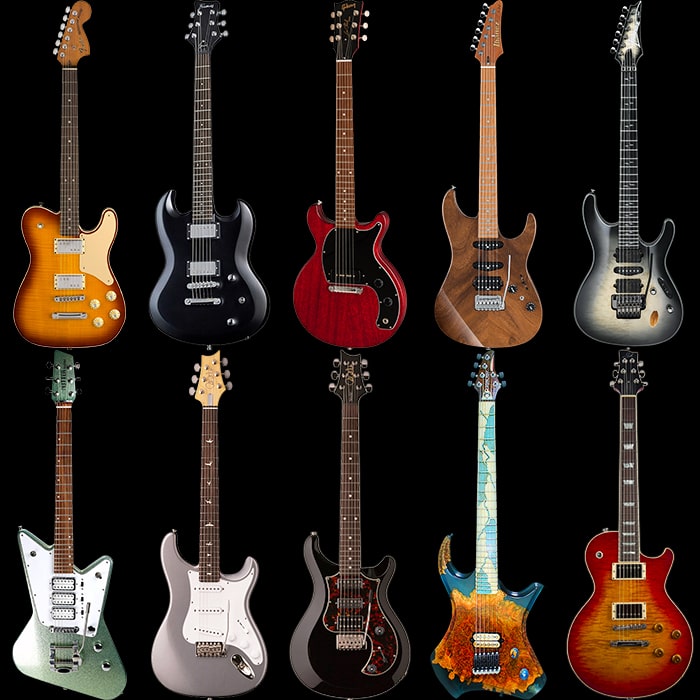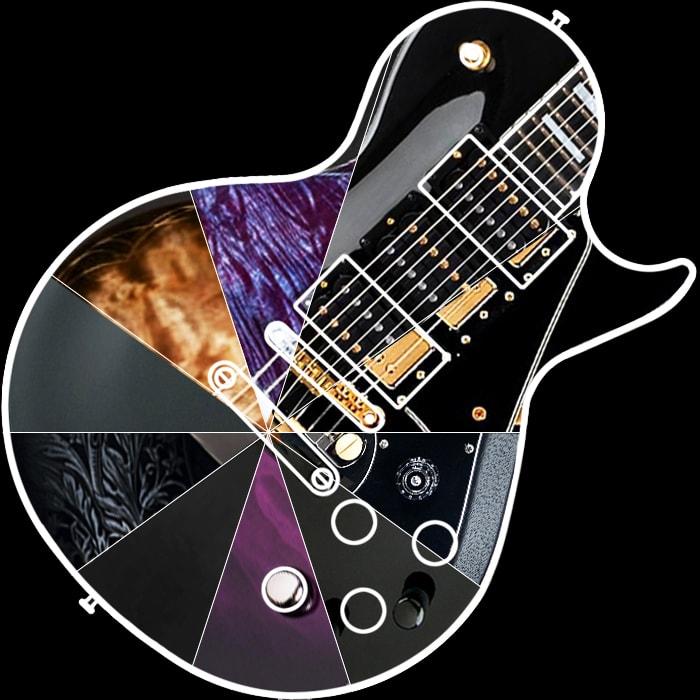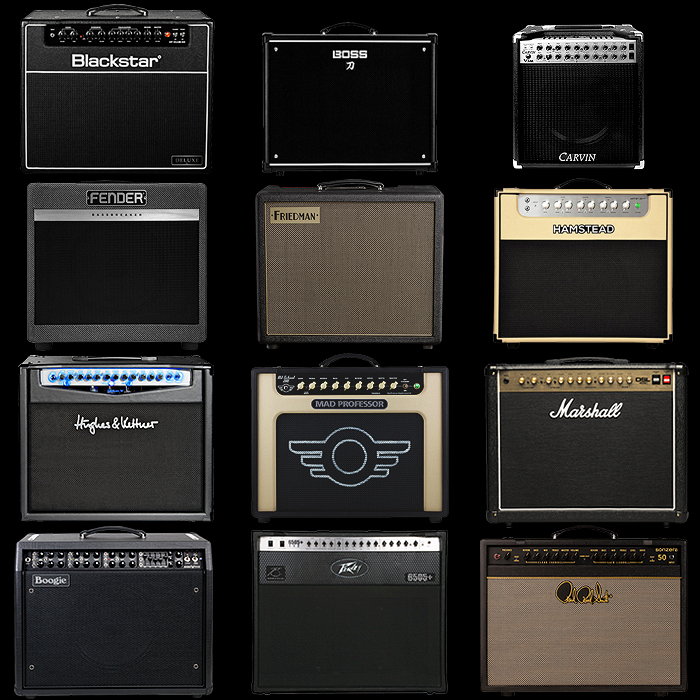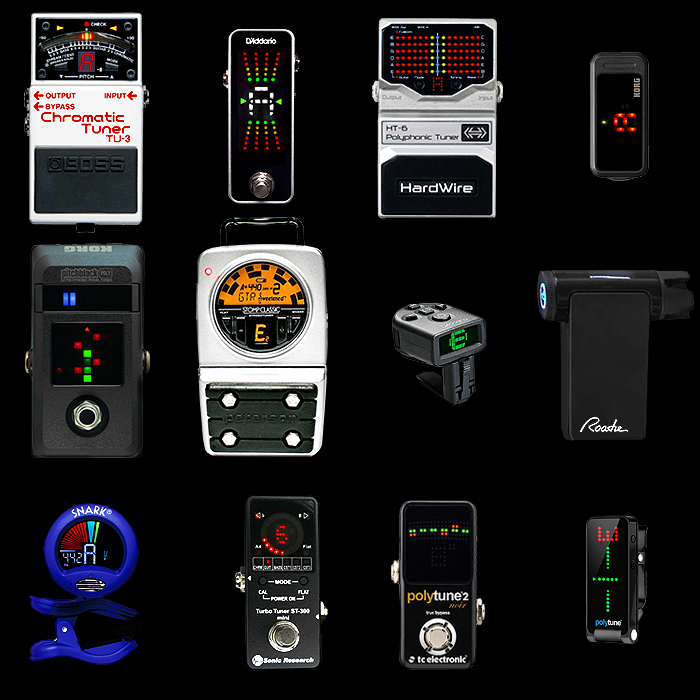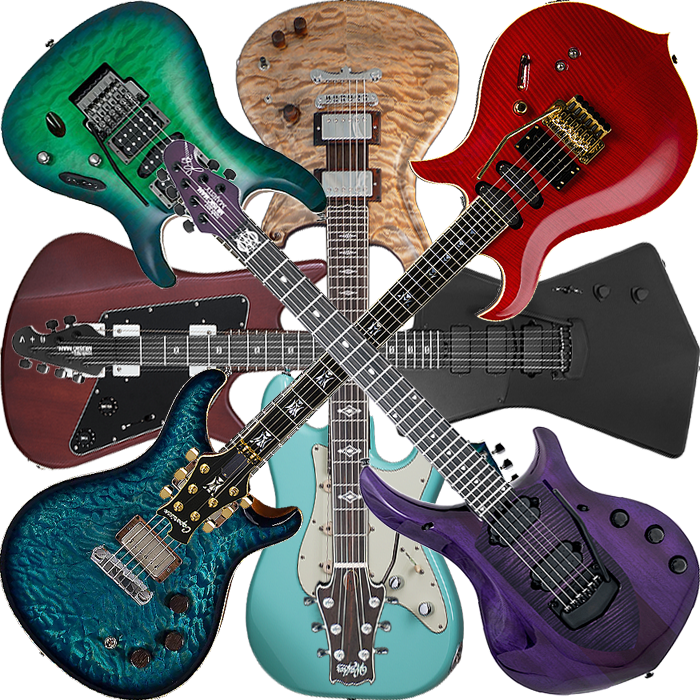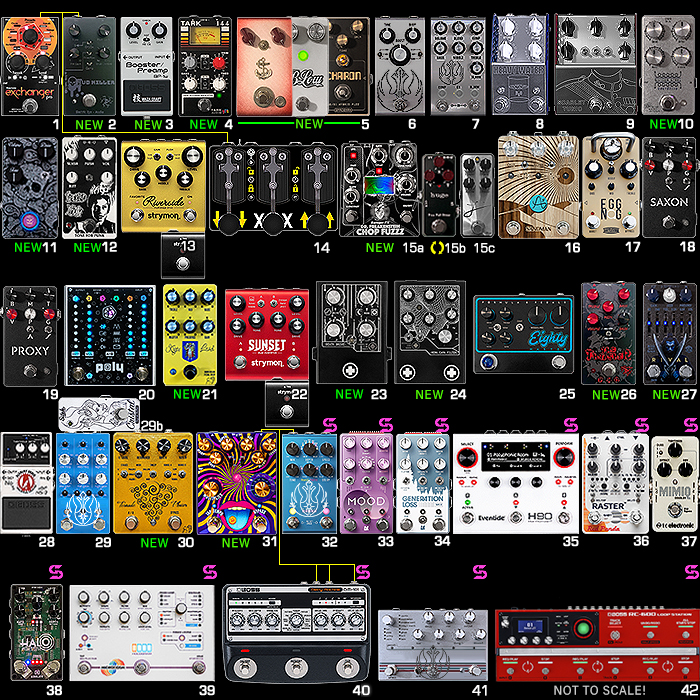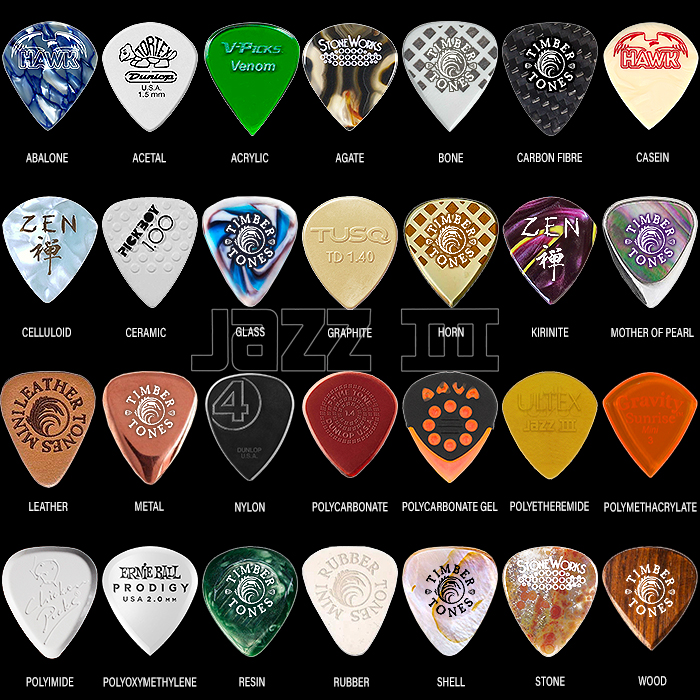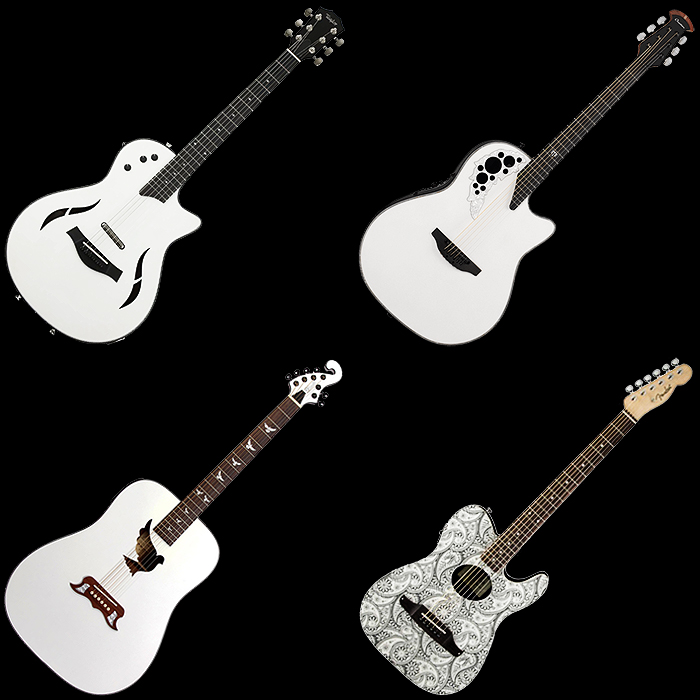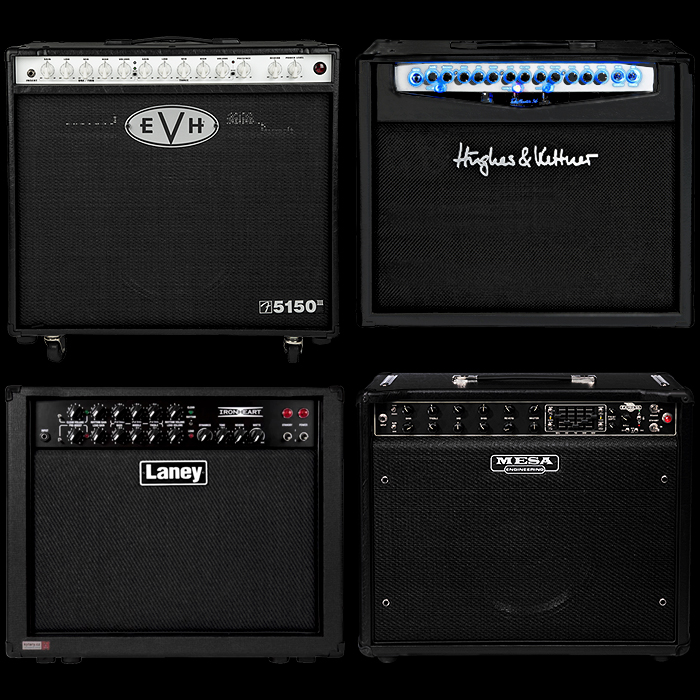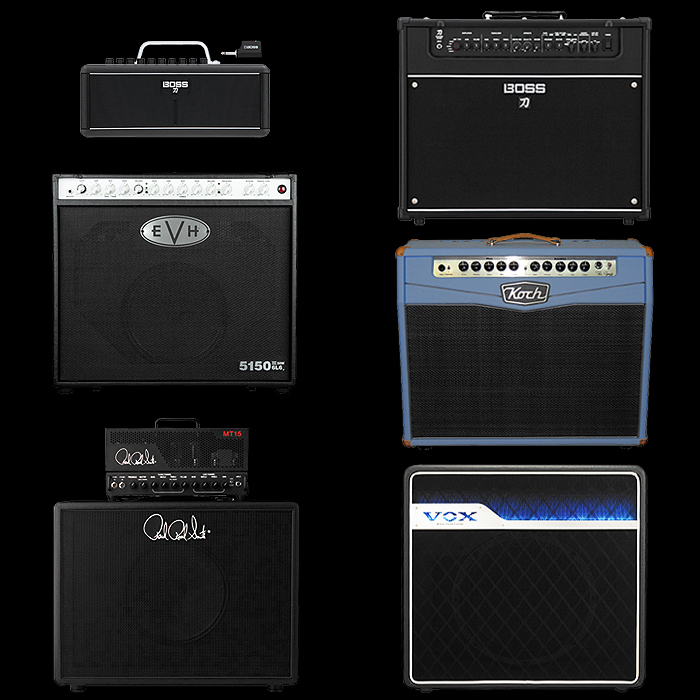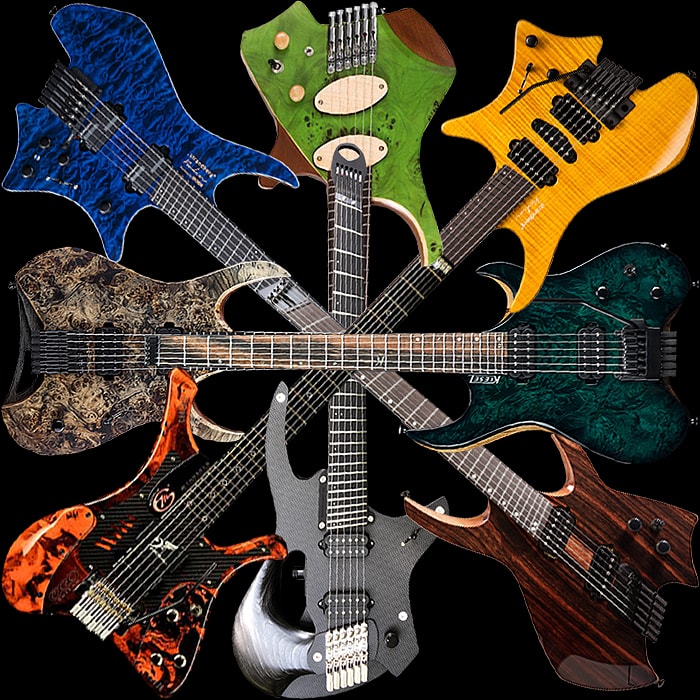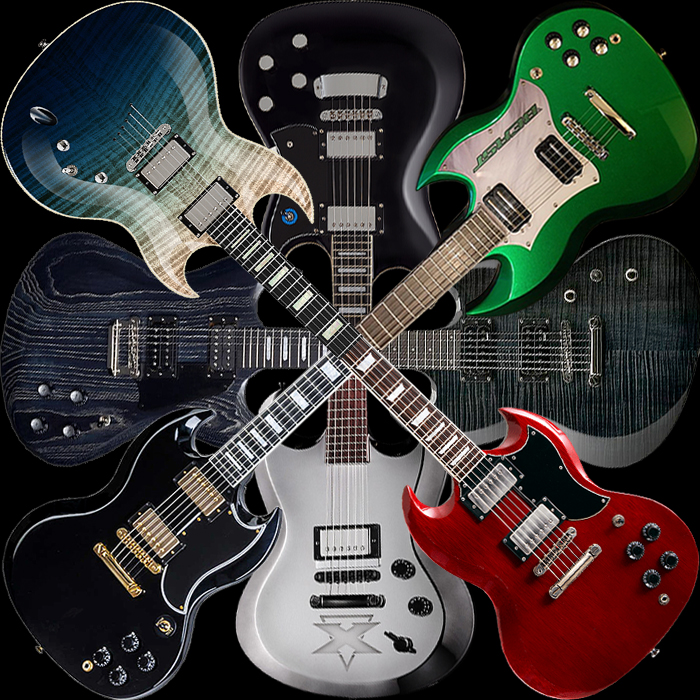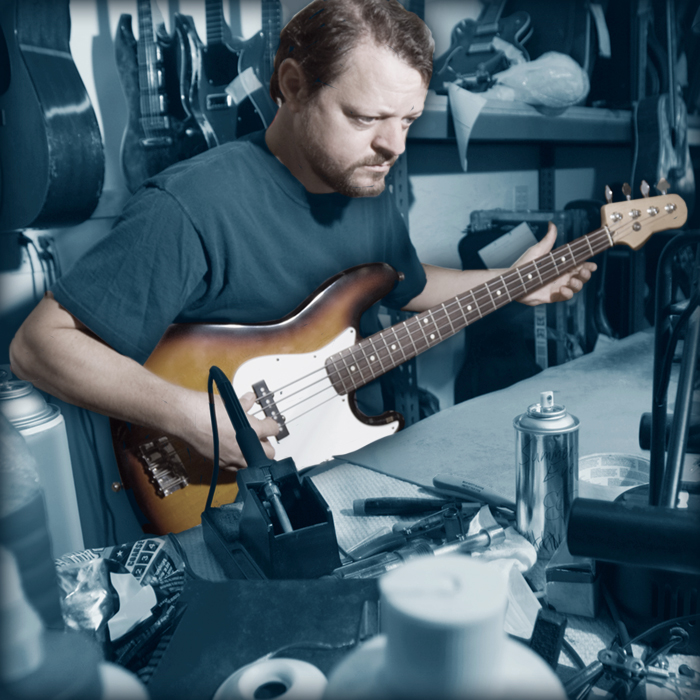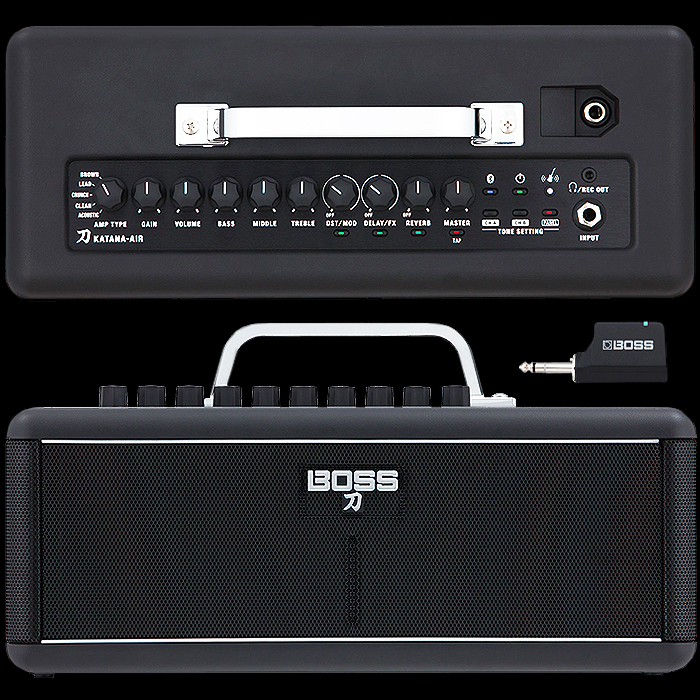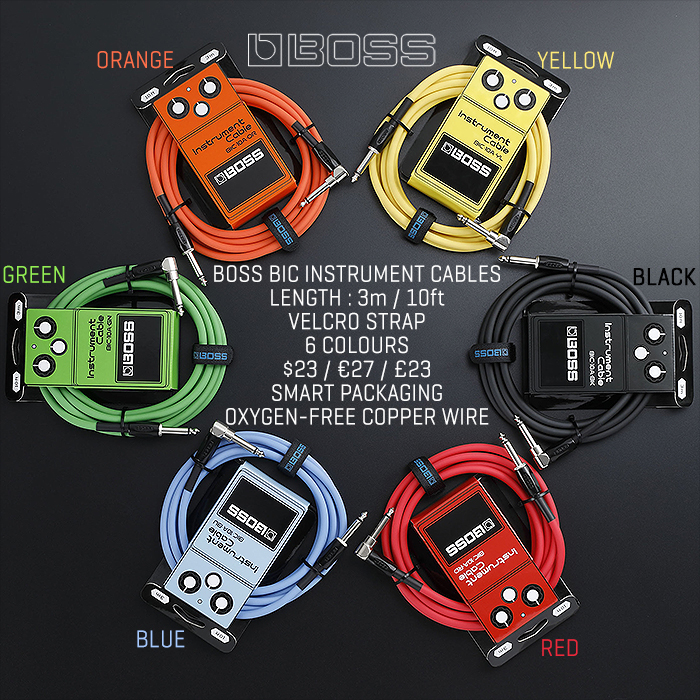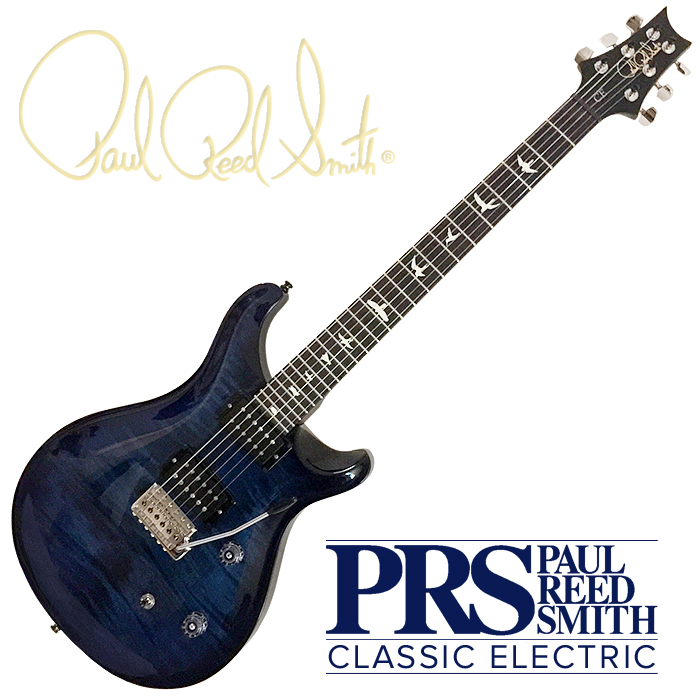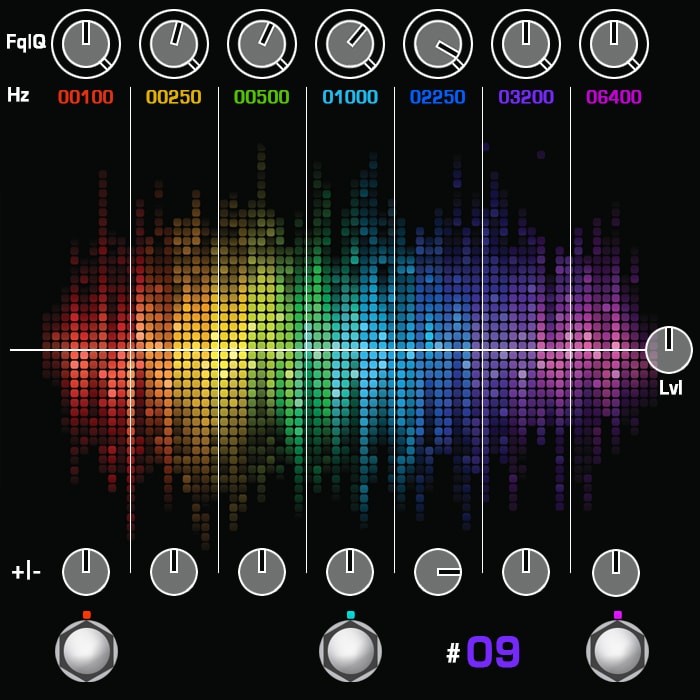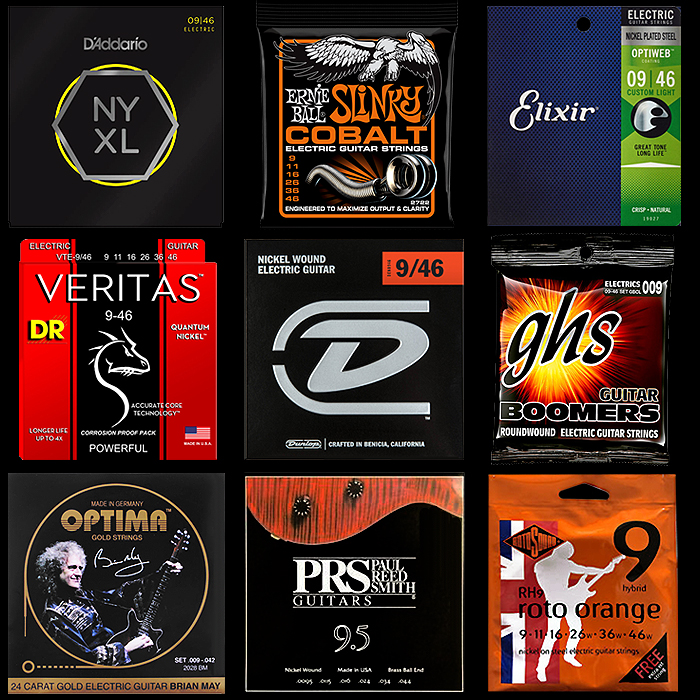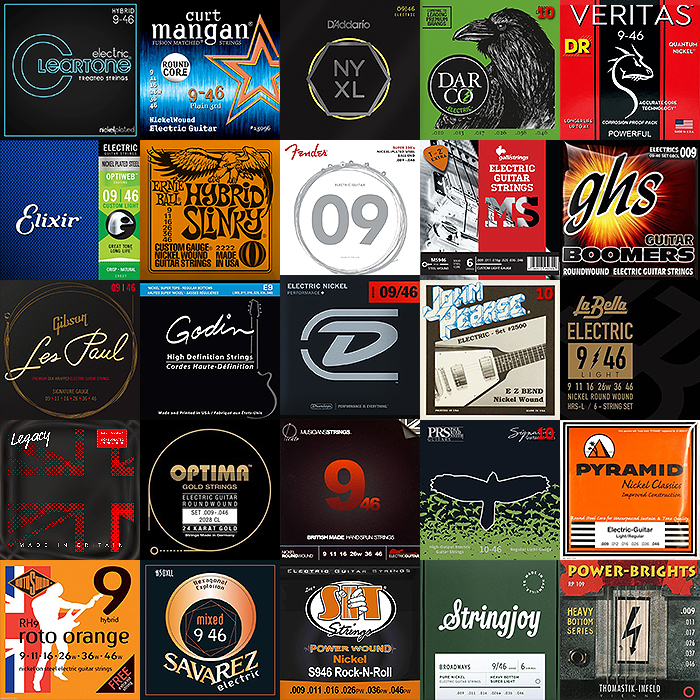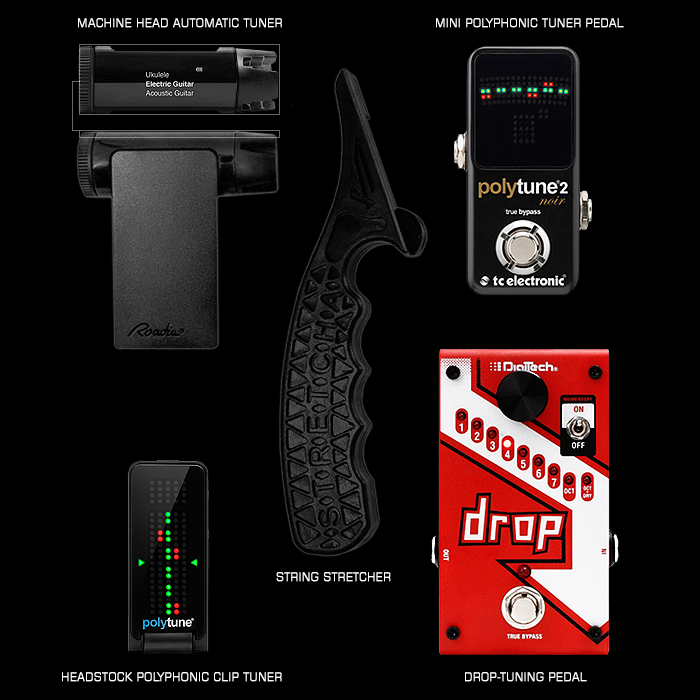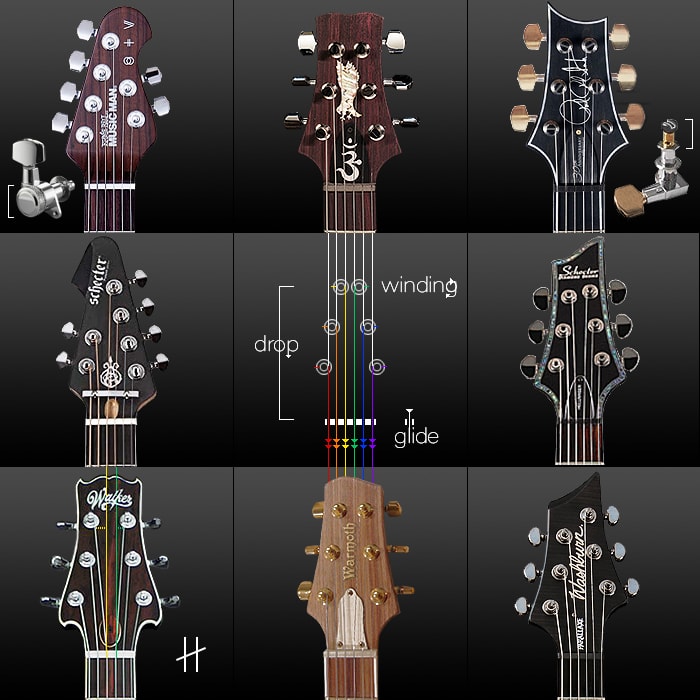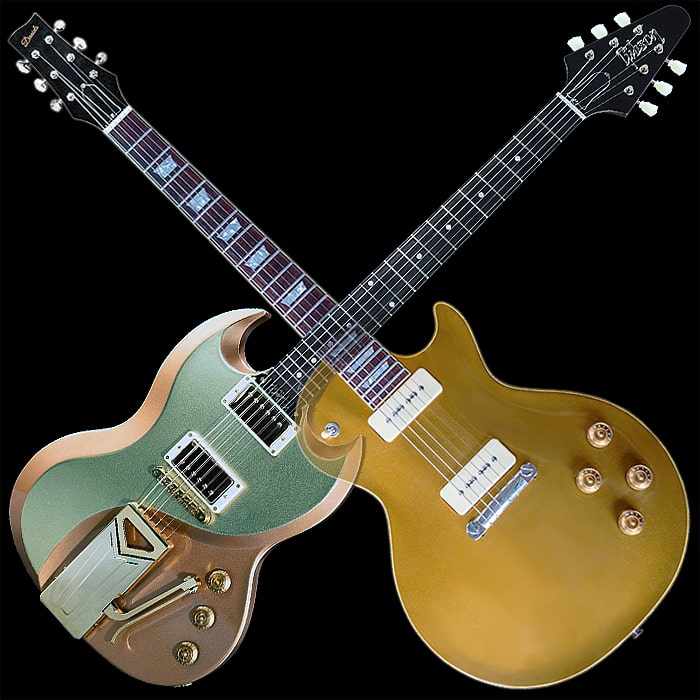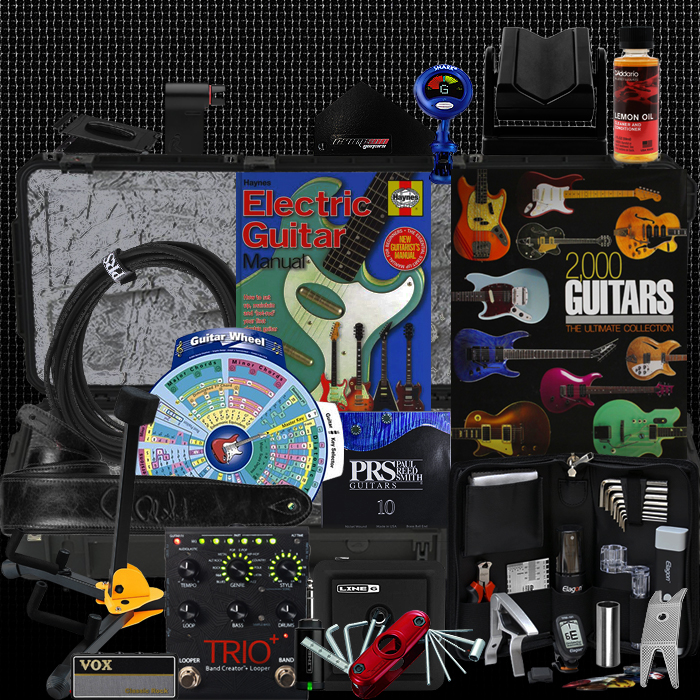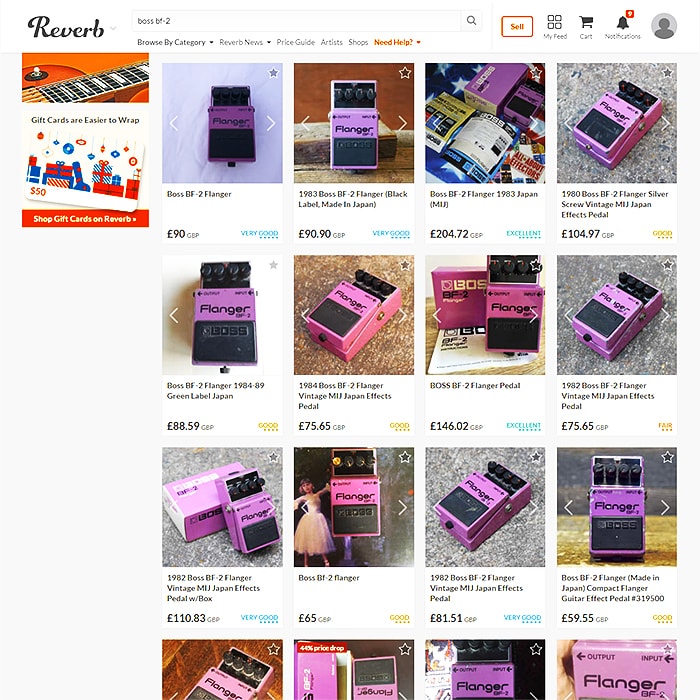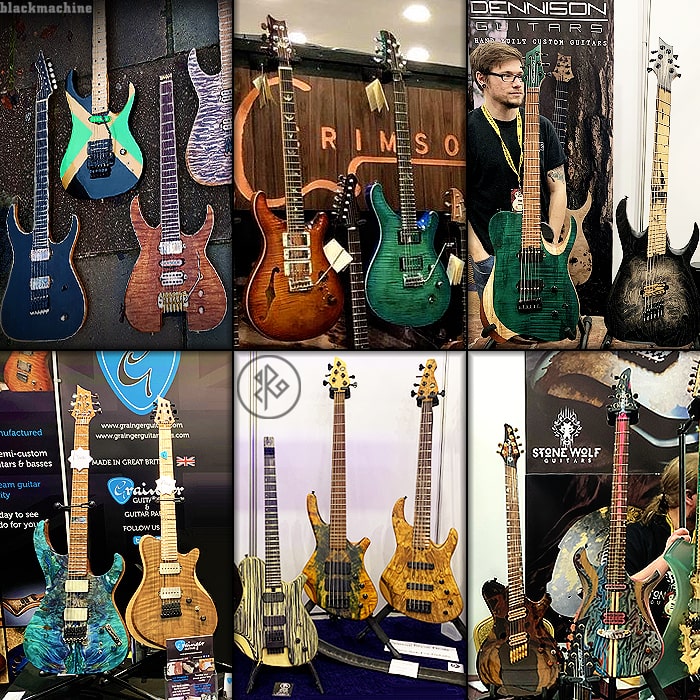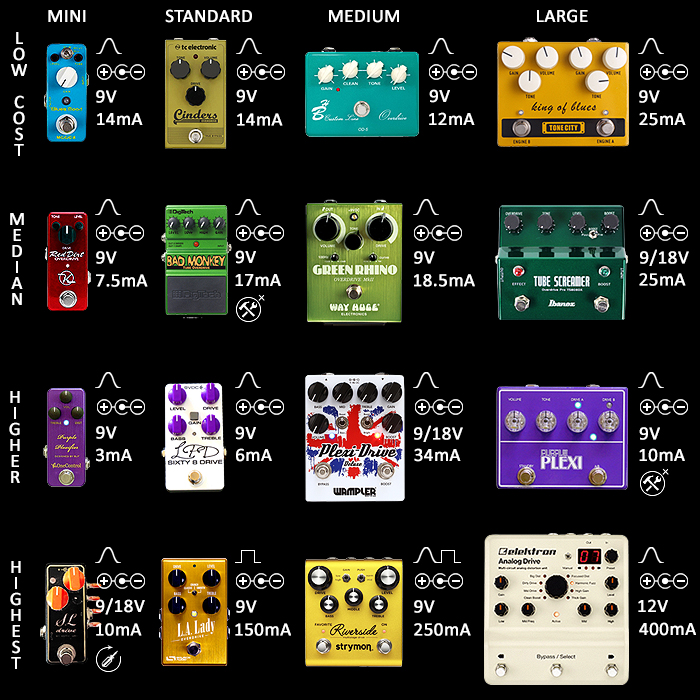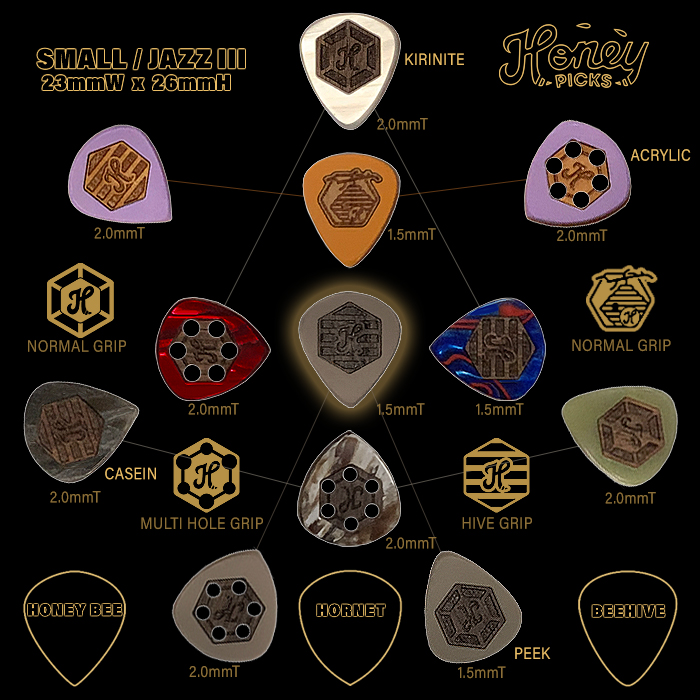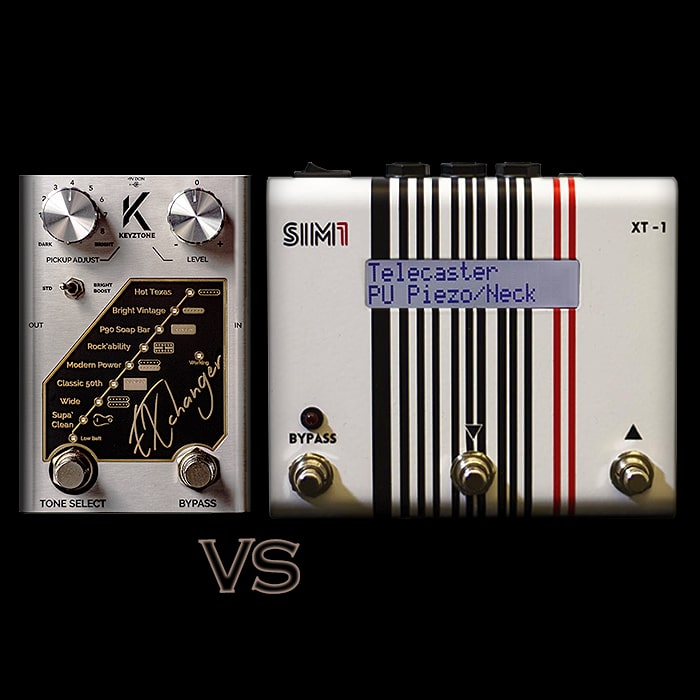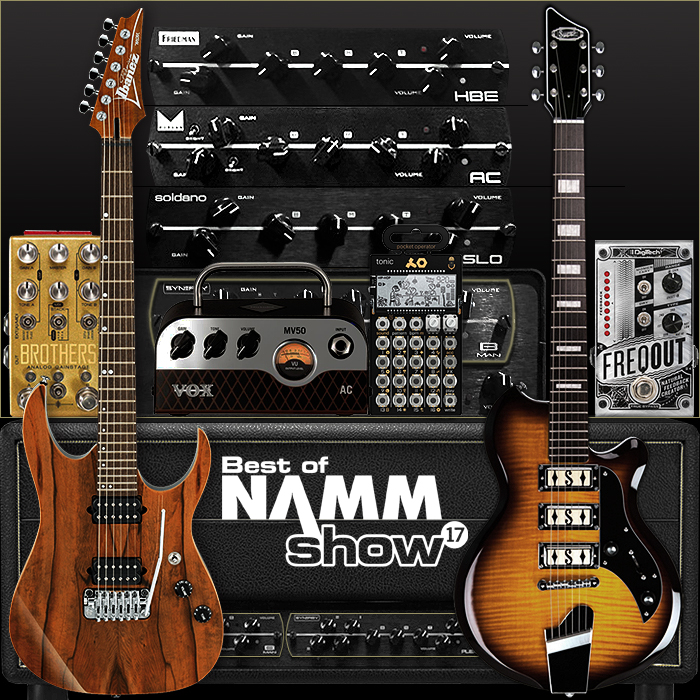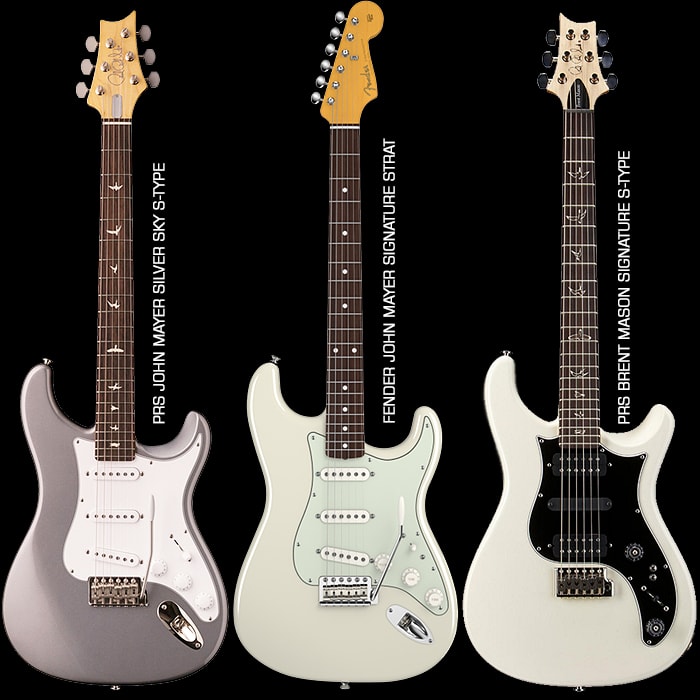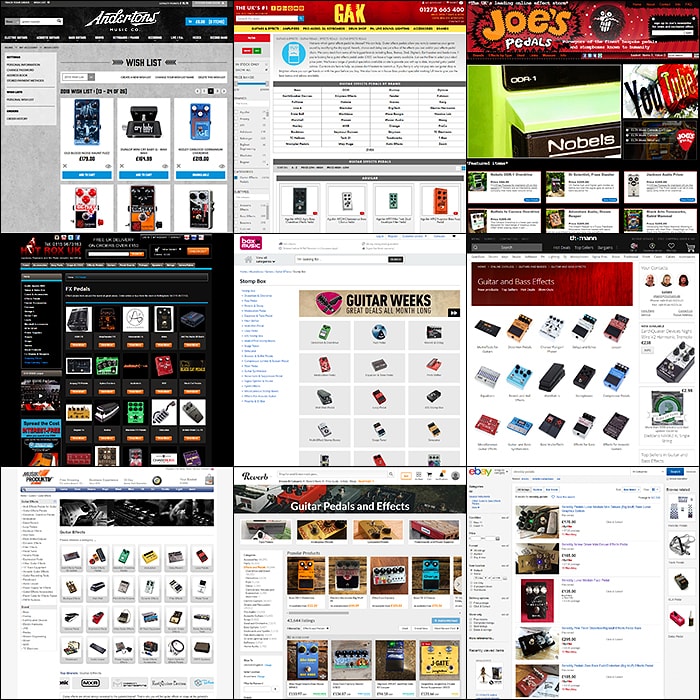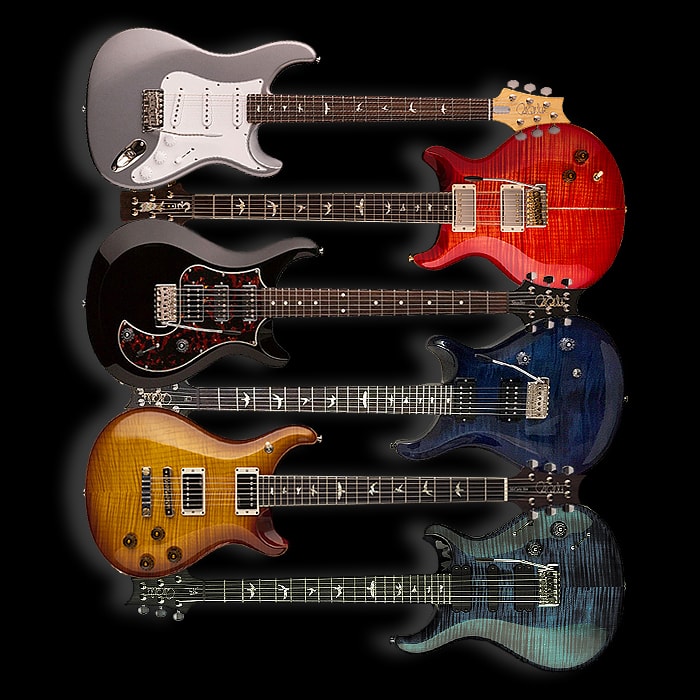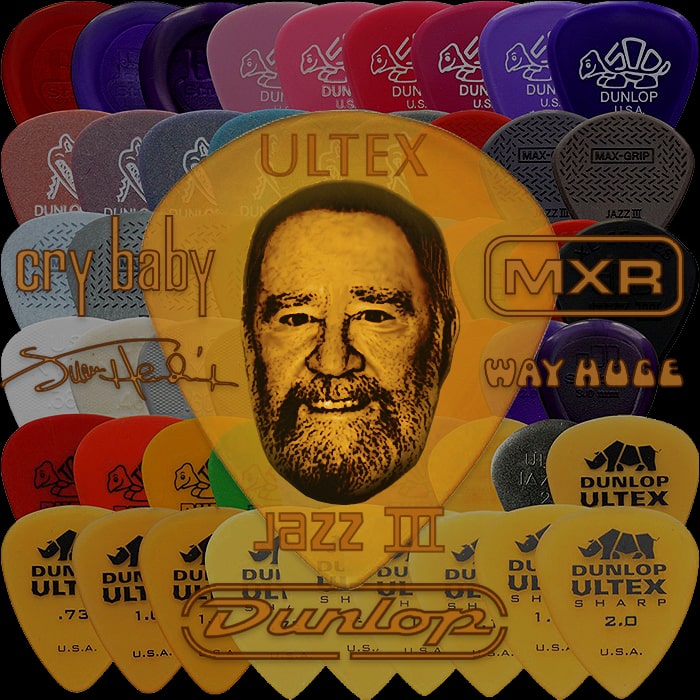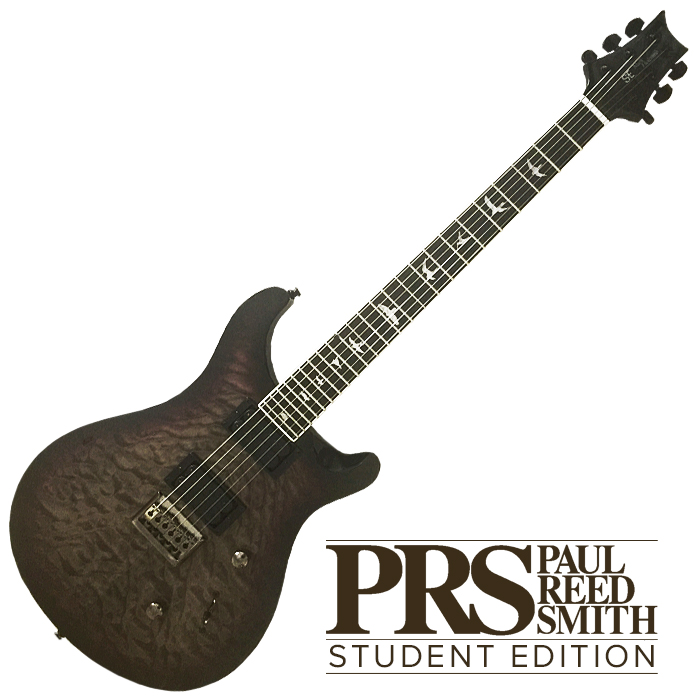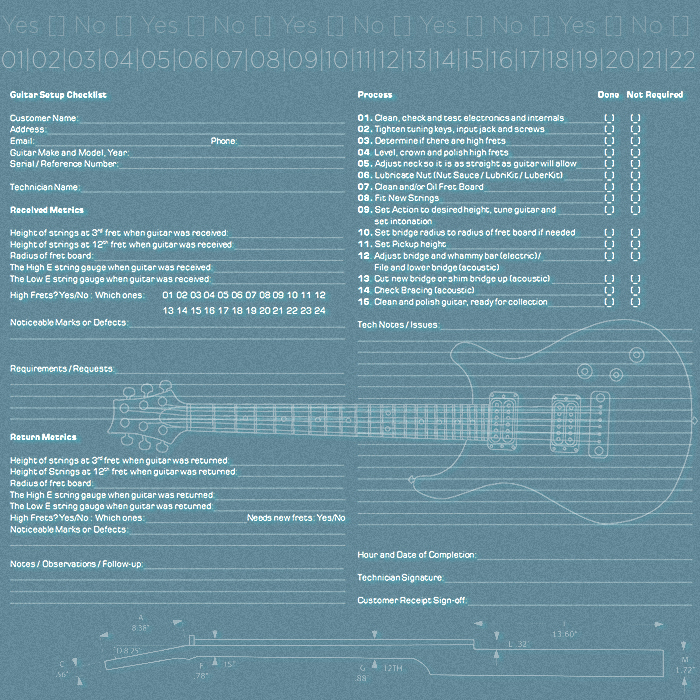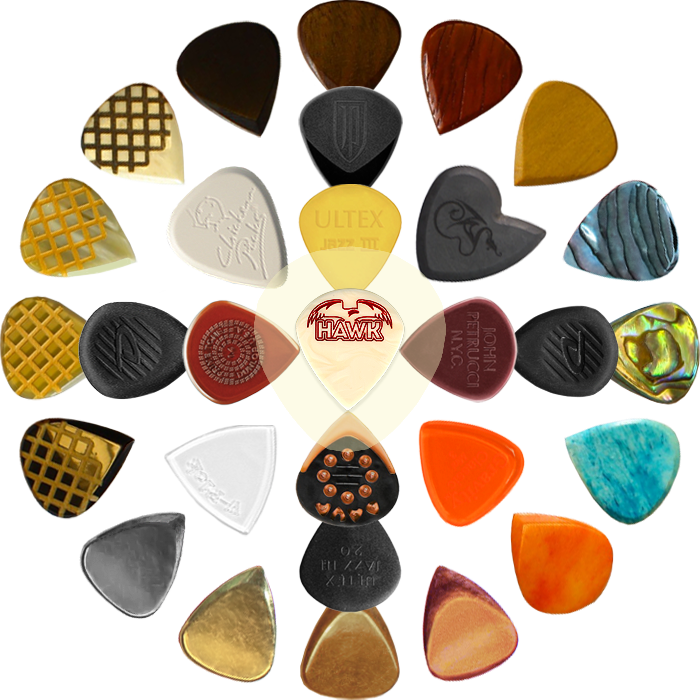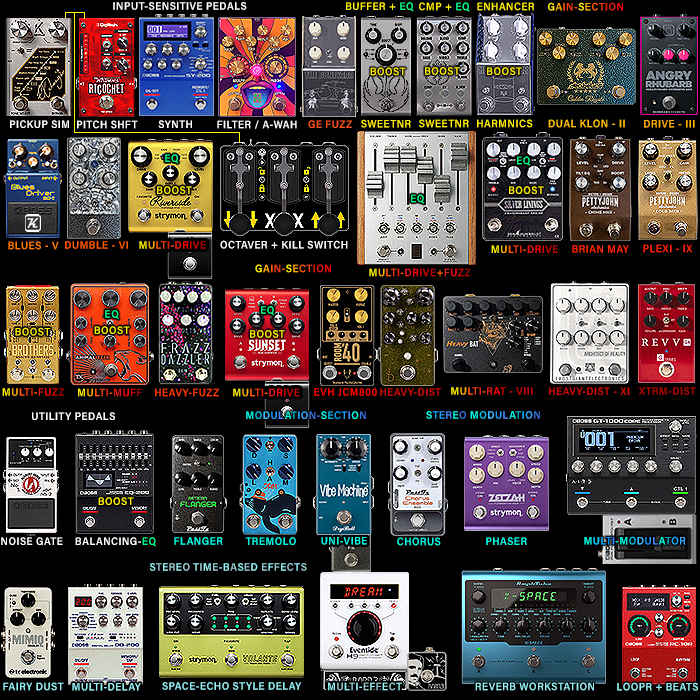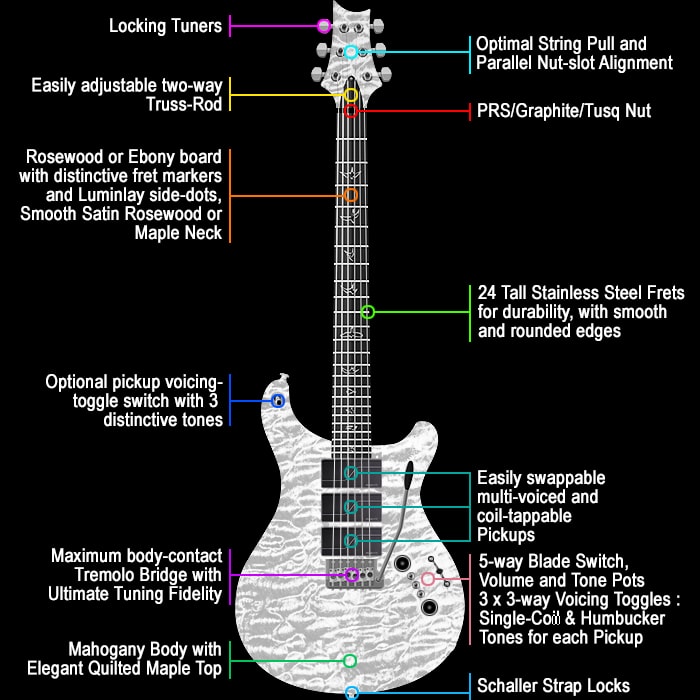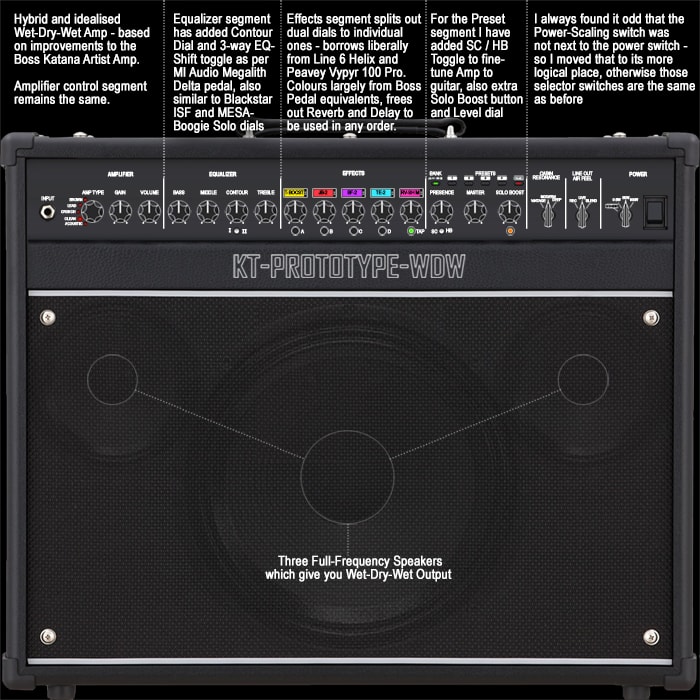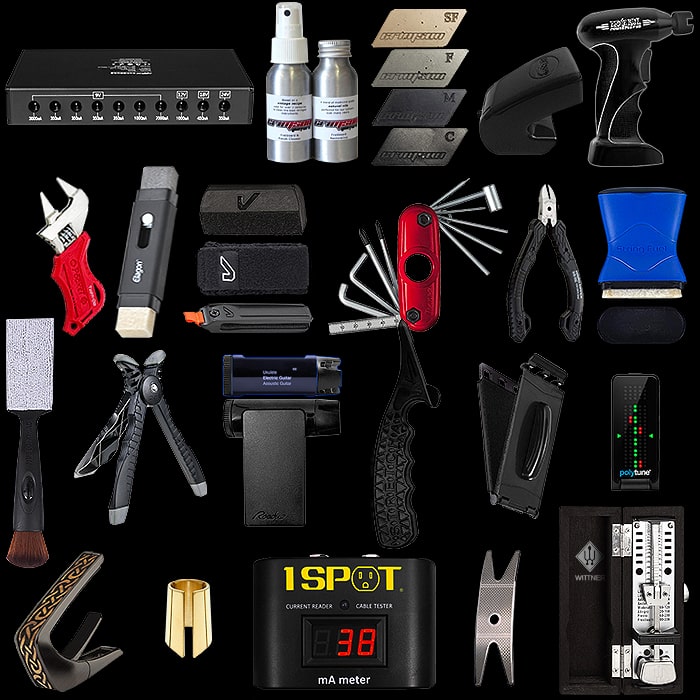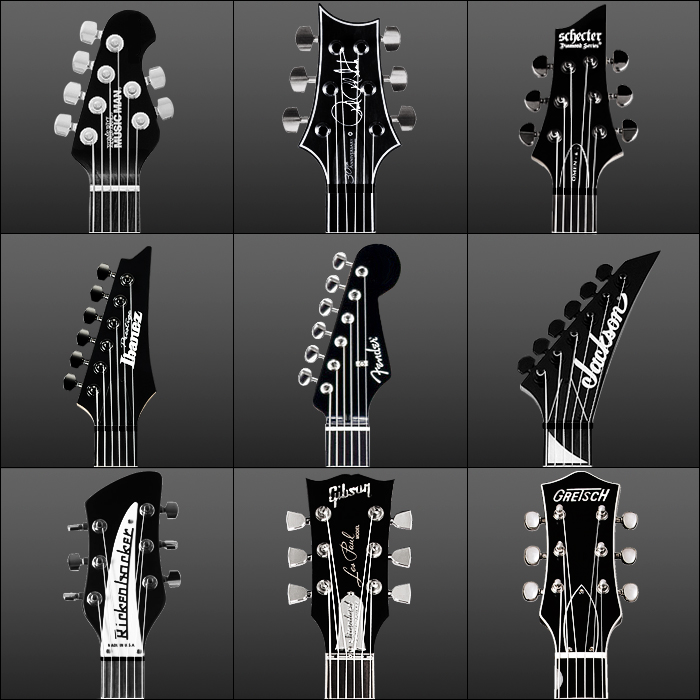Choosing the Right Guitar Pick
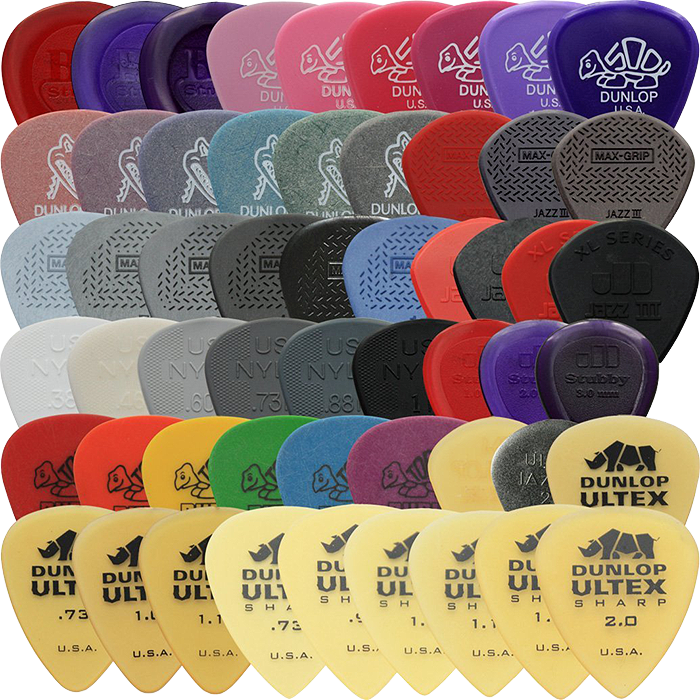
I’ve already taken you through the considerations and steps for choosing an electric guitar and amp. Sometimes overlooked to a degree, but of some significance too is your choice of plectrum / pick. Not only does your pick have a great influence on your overall tone, it also totally informs and influences your playing style - in terms of how comfortable you find the grip, how easily you hold onto it, and how dynamically it allows you to play.
Getting back into guitar again, all the guides were saying you should start with a Medium thickness Regular size pick. Being quite the avid Rob Chapman fan though, I first tried out his signature 2.0mm Gravity Razer Picks (Acrylic). These are definitely not for beginners, and mostly just suitable for Rob’s more hard-rock and metal playing styles. If you do a lot of strumming, then most of those thicker, sharp-edged picks aren’t that suitable.
So I acquired a few regular medium thickness celluloid pearlescent picks in blue - Fender Premium, and PRS Pearloid. These were OK I suppose, but did not sit particularly comfortably in my fingers. I then tried some Dunlop Max Grips, but for whatever reason these just did not feel right - neither between the fingers, or sonically.
By happy serendipity a Snark Neo Tortoise pick (faux tortoiseshell) was included with their Tuner. I bought some more, and these became my regular picks for a while (0.78mm) and I felt very comfortable using these. People’s skin is variously dry/oily/sweaty and some guitar picks will stick / grip more easily than others. I’m fine playing with the celluloids, but the Snarks seemed to give me more confidence, and were less likely to turn around in my hand.
I’m an avid fan of various players and YouTube Channels, and I increasingly started to notice that many of the players I liked were rating and using the smaller Jazz III varieties. So I made a concerted decision to try those out, however the Jazz III comes in an enormous variety of materials, thicknesses and contours, and I needed to know which of these were right for me.
The Variety Pick Pack
Searching on Amazon, by great fortune, I came across a Dunlop Variety Pack with no less than 55 different picks, and including 12 different Jazz III varieties - all for £23.99. I spent days experimenting with all of these and was amazed by how different the quality of sound was between picks, as well as the picking dynamics of each. After nearly a week’s worth of trial, I had settled on 3 of the smaller sized picks as my favourites, all with slightly different tonal qualities, and with different pros and cons:
- Ultex Yellow Jazz 1.38mm - Beautiful smooth, warm sound and great playability
- Ultex Black Contoured Jazz 2.00mm - sharp precision and attack with very clear and crisp tone bite
- Small Purple Stubby 3.00mm - bright, chimey tone and easy to strum with
Someone else I follow - Phillip McKnight, has also made a number of ’Pick Packs’ available for sale on his Store - International shipping is an additional $3 I believe, and the main packs contain 37 different picks plus a free Korg Pitch Clip Tuner - all for circa $40. I will likely be getting the ’Heavy’ pack, possibly the ’Standard’ too.
Dunlop Picks
The most significant plectrum manufacturer around today is Jim Dunlop, with an almost endless variety of picks made from all the major materials, in the broadest possible variety of styles, sizes thicknesses, contours etc.. It is a very rare player who does not have at least one type of Dunlop in their toolkit.
Key Dunlop Pick varieties include:
- Adamas Pick (Graphite)
- Americana (Polycarbonate)
- Delrin 500 (Acetal / Polyoxymethylene)
- Felt (Dense Wool+Cotton mix)
- Fins - Nylon, Tortex
- Gator Grip (Delrex)(Acetal / Polyoxymethylene)
- Gel Standard (Polycarbonate)
- Herco (Nylon)
- Jazz III - various, typically Nylon or Ultex (Polyetherimide)
- Jazztone (Polycarbonate)
- Max Grip (Nylon, Carbon Fibre)
- Nylon Standard / Glow / Midi (Nylon)
- Poly Pics (Polycarbonate)
- Primetone (Polycarbonate)
- RIFFS (Nylon)
- Speedpick (Acetal / Polyoxymethylene)
- Stainless Steel (Steel)
- Stubby (Lexan / Polycarbonate)
- Tortex (Acetal / Polyoxymethylene)
- Techpick (Aluminium)
- Tri- / Triangle (Stubby, Tortex etx.)
- Ultex (Polyetherimide)
Having settled on 3 Jazz III style picks, I next want to try: John Petrucci Jazz IIIs, Adamas, Jazztone and Primetone varieties, possibly Steel and Techpick varieties too.
The 7 Essential Characteristics of Picks
When looking for, trialling and reviewing picks, there are 7 elements that you need to be aware of, and all of them contribute to tone, playability and playing style. These are probably better as a benchmark to find other similar picks once you have a preference, otherwise you may be overcome by option paralysis, as there are so many different variations out there. I encourage you to buy a variety pack or two and simply keep trying until you find something that really sticks. You can of course get obsessed with the quest for perfect tone, so you need to decide how much of your time all this is really worth.
Another thing to be mindful of is durability - thinner and less dense picks tend to wear out quicker than those made from thicker and harder materials.
Size - Small / Jazz (c22m x 25mm), Medium / Regular (c26mm x 31 mm), Large (c30mm x 36mm), XL (c35mm x 40mm), XXL (c50mm x 57mm)
Shape - Mostly variations of circle and triangle or combinations thereof, some with different variations on each end-point - e.g. ’Dragon Pick’, taper / edge contour and pointiness are key for precision and attack, use smoothed-off points and rounded edges if you want to play smooth. Several picks have multiple different point styles / designs, some have 4 or even 6 points and are more star-shaped
Thickness - Skinniest pick I currently have is a Dunlop 0.38 Nylon, Thin is usually 0.1mm - 0.6mm, Medium is 0.6mm to 0.9mm, Heavy is anything thicker than 0.9, usually though 1.0mm upwards, Heaviest pick I have is a 3.0mm Dunlop Stubby. Purple Plectrum go up to 25mm
Material - Various Plastics and Resins: Acetal / Polyoxymethylene (Delrin), Acrylic, Celluloid, Faux Tortoiseshell / Tortex (Delrin), Nylon, Polycarbonate (Lexan), Polyetherimide (Ultem / Ultex), Carbon Fibre, Felt, Glass, Graphite, Metal, Rubber, Stone, Tagua. Tortoiseshell and Wood etc. Material density and smoothness has a very significant impact on tone - degree of attack etc.
Texture - Gloss / Satin / Rough - impacts ease of grip, as well as playing tone - some materials have thermal properties which make surface slightly sticky when touched for a while, for the main part though the smoother / harder the surface, the harder the tone, and the more slippery the pick
Flex - A combination of Material and Thickness - typically the thinner a pick is, the more flex (less rigidity) it has. Certain harder materials like metals and other composites need to be much thinner than plastic equivalents to exhibit similar degrees of flex
Point/s - The Tips or Points of plectrums are variously chiseled and sharp, serrated or rounded. For fast, accurate picking with bite, you need a pretty sharp end; for smoother sounds - go for rounded tips with softer edges. You can get an enormous variety in character of tone by simply varying the shape and articulation at the ends and edges of a pick - the same material can sound quite different with different point shapes and radiuses
Notable Pick Manufacturers
There are a hundreds of pick makers out there, pretty much every guitar manufacturer of note has their own branded picks. Jim Dunlop is miles ahead of others in terms of variety and overall quality, D’Addario / Planet Waves and Steve Clayton are also worth a look-in as major players with interesting products. I’m intrigued by Chicken Picks, Dragon Hearts, Purple Plectrums, Red Bear and Swiss Picks - some of which I may try out at some stage.
Beyond pursuing the Dunlop Jazz III path, the next likely trial will probably be a Purple Plectrums Rob Scallon signature pick as it’s quite different to anything else out there. Hand size and finger length probably play a significant part too in ultimate pick compatibility.

